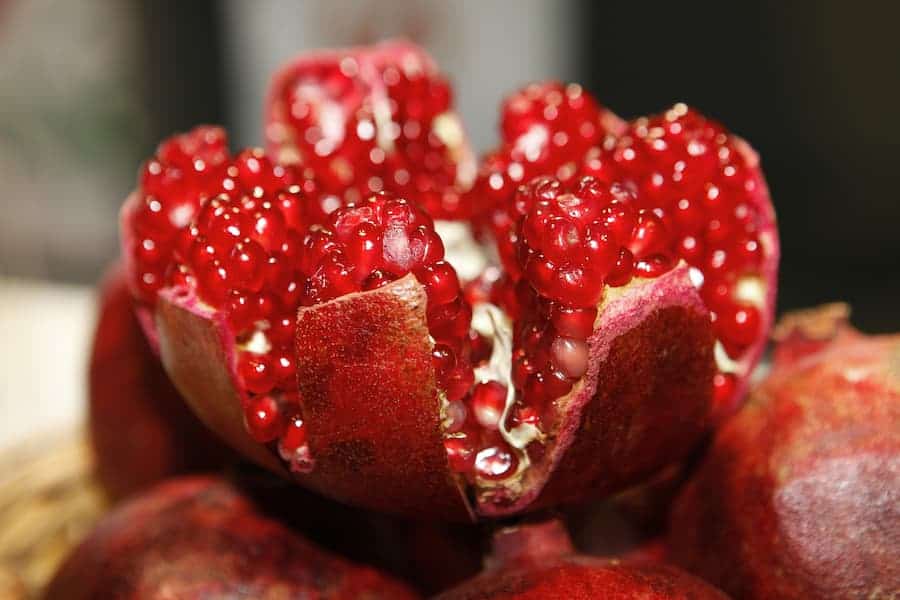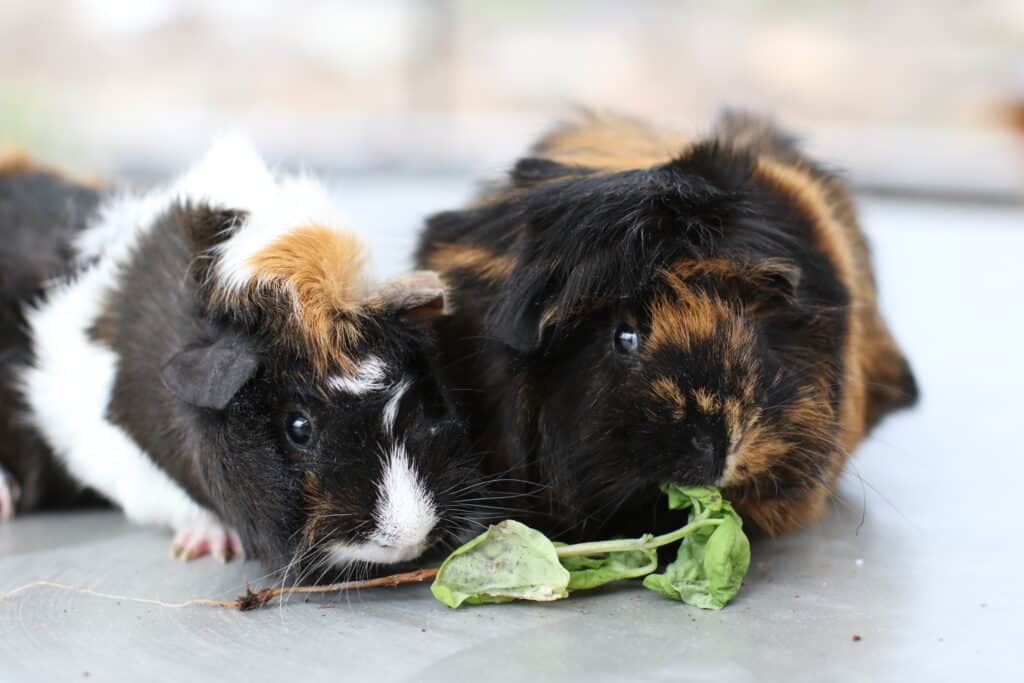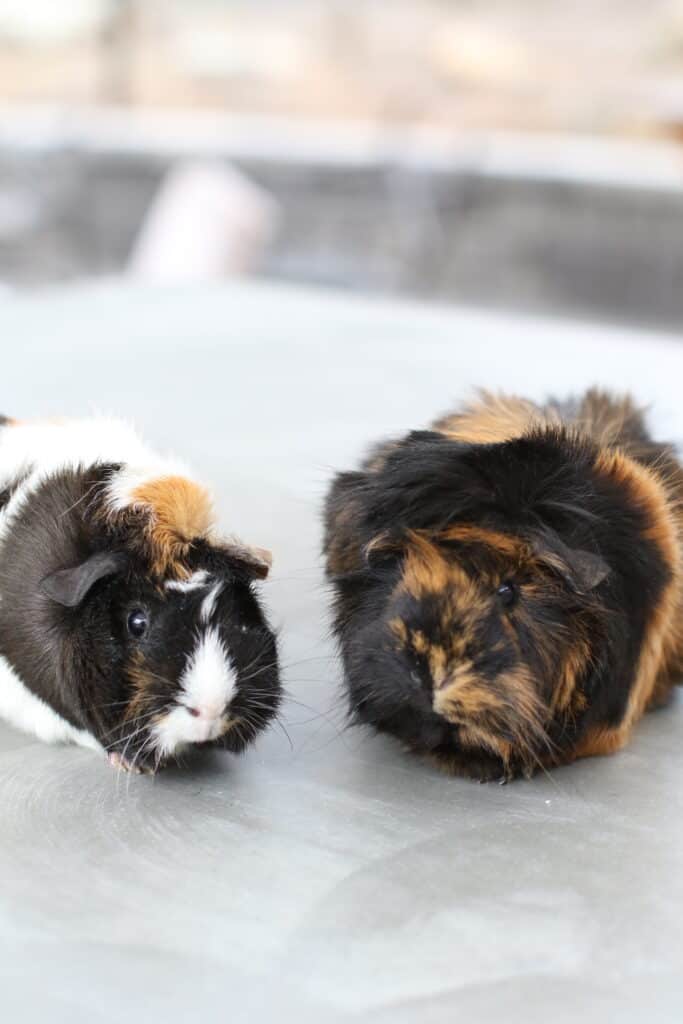As an Amazon Associate we earn from qualifying purchases.
Taking care of guinea pigs requires knowing what kind of food they intake daily and monitoring their diet to ensure overall health. While guinea pigs can eat a lot of fruits, people often ask, can guinea pigs eat pomegranate? Here’s the answer you’re looking for.
Can Guinea Pigs Eat Pomegranate?
Yes, Guinea Pigs can eat pomegranates. Pomegranates contain a lot of vitamins and minerals necessary to have a healthy and strong guinea pig. Plus, they are delicious fruits that they actually enjoy.

However, it is not advisable to feed them large amounts of pomegranates as the fruit’s limitless benefits can inflict more damage than help if consumed in large quantities. Thus, it is extremely important to understand what are the benefits, risks, and other safety reminders about fruits such as pomegranates before feeding them to guinea pigs.
Benefits of Eating Pomegranates for Guinea Pigs
Pomegranates are one of the few fruits that provide a generous variety of nutrients like vitamins and minerals that are necessary for guinea pigs’ growth. The nutrients and the benefits may vary depending on the guinea pig’s condition and age. Here is a list of pomegranates benefits in guinea pigs:
- Vitamin C: Pomegranates are high in vitamin C which can help boost the guinea pigs’ immune system against common diseases.
- Vitamin K: The vitamin K found in pomegranates helps with blood clotting and healing wounds for guinea pigs. It is also vital for maintaining their teeth, fur, and skin healthy.
- Folate: Pomegranates are rich in folate, which is one of the rare minerals that can be found on foods. Folate helps the body against germs and other internal bacterial diseases and infections. I also help make red blood cells and carbohydrates for guinea pigs’ daily supply of nutrients and energy.
- Fiber: Fibers found in pomegranates help the guinea pig’s weak digestive system to break the fats and control the cholesterol build-up in their bodies.
Things to Consider Before Feeding Pomegranates to Guinea Pigs
While pomegranates have a lot of benefits due to their high nutrient content, they can also put guinea pigs’ health in compromise. Eating excessive amounts of pomegranates might cause health problems and conditions to guinea pigs. Thus, understanding the benefits and risks of pomegranates to guinea pigs is necessary.

Guinea Pig’s Needs
Different guinea pigs require different types of diet and nutrients in their bodies. For instance, pomegranate fruits are high in sugar and water content which tends to cause diarrhea and problems like diabetes and high cholesterol levels in adult and old guinea pigs. However, feeding pomegranates to young guinea pigs can help them build their bones and muscles due to the bone and muscle-building nutrients that can be found in the fruit.
Possible Health Problems From Excessive Pomegranate Feeding
If fed in high amounts, pomegranates can cause various health problems, diseases, and conditions in guinea pigs. Having a fragile body and stomach, guinea pigs are prone to common diseases that can be fatal from their end if not careful. Here are the most common health problems caused by excessive pomegranate feeding:
- Obesity
- Diabetes
- Diarrhea
- Mouth sores
- Digestive problems
- Urinary problems
The safest portion of pomegranate you can feed to guinea pigs should only be around three to four pieces thrice a week. Eating more than the suggested amount can lead to health risks and problems.
Pomegranate Feeding Reminders
It is also vital to know what parts of pomegranates are specifically safe or harmful for them. That being said, only feed the red bubble-like part of the fruit to guinea pigs as this part is the safest for them to eat. You can feed them seeds but make sure to give them one at a time to avoid choking accidents.

Related Questions
What Part of Pomegranate Can Guinea Pigs Eat?
Guinea pigs can consume seedless pomegranate at ease as the seeds are considered as choking hazards from them. Do not feed them pomegranate skin and juice as it is high in sugar and water content which can cause various problems in guinea pigs’ health such as diarrhea, diabetes, obesity, and digestive problems.
What Is Poisonous to Guinea Pigs?
Make sure to not feed your guinea pigs cereals, grains, nuts, seeds, beans, corn, peas, garden shrubs, and lilies of any kind as it can be poisonous and fatal for them. Only feed them hay and mixed green vegetables as these are their suggested daily diet along with a few bite-size fruits that are safe for them to eat.
Conclusion
Guinea pigs can eat pomegranates and enjoy their taste and health benefits due to their high amount of vitamins and minerals. However, feeding too much pomegranate can lead to health problems. With that, it’s advisable to nourish them in appropriate amounts thrice a week to maintain the guinea pigs’ health.